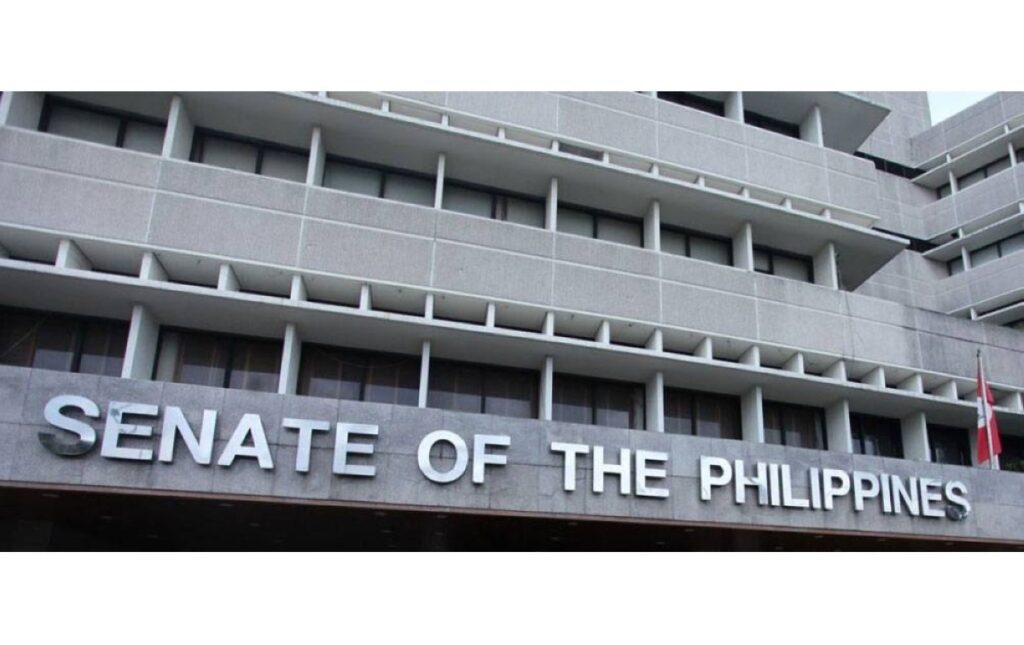(UPDATE) Expulsion of the erring diplomat or the downsizing of the embassy are the possible consequences of the wiretapping by the Chinese Embassy in Manila of the Philippine military, Sen. Francis Tolentino said Wednesday.
Tolentino made this observation after the Senate Committee on National Defense and Security, led by Sen. Jinggoy Estrada, agreed to investigate the incident in which the Chinese Embassy released an audio recording and transcript of a conversation, purportedly between a Chinese diplomat and Western Command chief Vice Adm. Alberto Carlos.
In the tapped telephone conversation, Carlos allegedly agreed to a “new model” for handling Philippine resupply missions to the beached BRP Sierra Madre in Ayungin (Second Thomas) Shoal to peacefully manage the territorial dispute there.
Estrada and Tolentino have agreed to invite officials from the Department of National Defense, the National Intelligence Coordinating Agency, the Department of Foreign Affairs (DFA), and the Chinese Embassy.
“We have heard of a pending investigation that will be conducted by the NBI (National Bureau of Investigation) concerning the matter. And it is a serious breach of existing international law for a foreign embassy to violate internal and domestic laws of a host country,” Tolentino said.
Get the latest news
delivered to your inbox
Sign up for The Manila Times newsletters
By signing up with an email address, I acknowledge that I have read and agree to the Terms of Service and Privacy Policy.
Republic Act 4200 makes wiretapping illegal and punishable under Philippine law, Tolentino said.
“The Philippines can assert its right to implement Philippine laws,” he said.
The senator said Chinese Embassy officials can attend “voluntarily” the Senate inquiry on May 21 on the reported wiretapping.
Tolentino clarified that the probe is not an acknowledgment of an agreement on Ayungin Shoal.
“What would be the consequences? They could be declared “persona non grata.” They would be asked to leave [the Philippines],” he said of the Chinese Embassy officials.
He said he would leave it to the DFA to decide what the consequences might be.
He said the DFA could cancel the work visas of the Chinese who are not involved in diplomatic functions such as clerks, cooks, messengers or drivers.
China has consulates in Cebu, Davao and Ilocos Norte. “So, there are a lot of them,” he said.
“It can even lead to a downsizing of the Chinese Embassy here in Manila,” Tolentino said, adding that this was “all speculation” at this point.
He cited some precedents in the expulsion of alleged erring diplomats. In 2020, the Chinese Embassy in Australia hacked the Australian Parliament. In 2018, about 60 Russian diplomats were expelled from their consulate in Seattle for alleged espionage.
Quoting from the Anti-Wiretapping Law, Tolentino said, “It is unlawful for any person, a participant or not in the act or acts penalized, to knowingly possess any tape record, wire record, disc record, or any other such record, or copies of any communication or spoken word secured either before or after the effective date of this Act in the manner prohibited by this law.”
“It is also unlawful for any person or persons to replay the unauthorized recorded communication, either verbally or in writing, or to furnish its transcription, whether complete or partial, to any person, unless allowed or authorized by courts as evidence in any civil, criminal investigation trial of offenses,” he added.
>>> Read full article>>>
Copyright for syndicated content belongs to the linked Source : The Manila Times – https://www.manilatimes.net/2024/05/16/news/national/senate-to-probe-wiretapping-by-chinese-embassy/1946471
